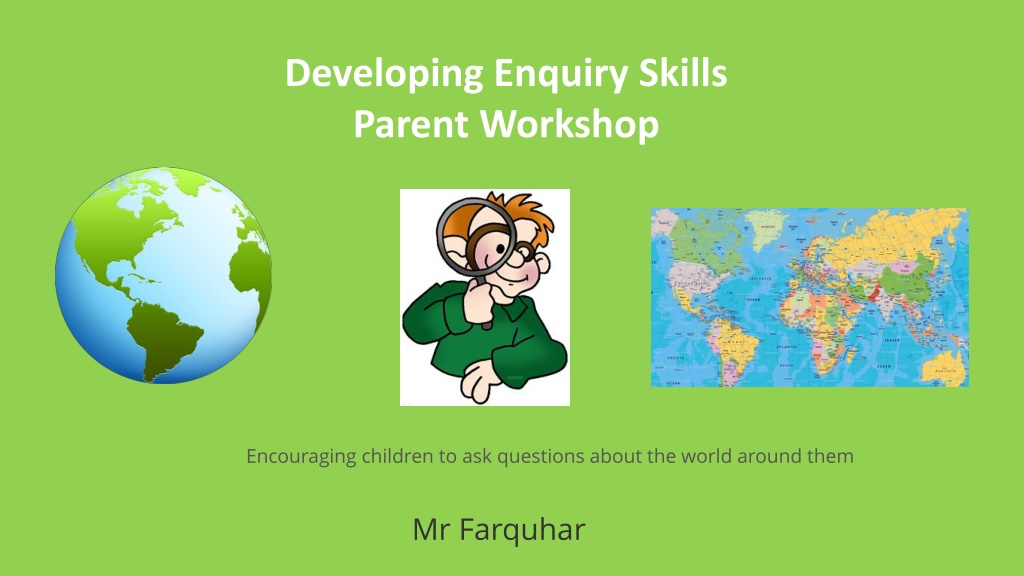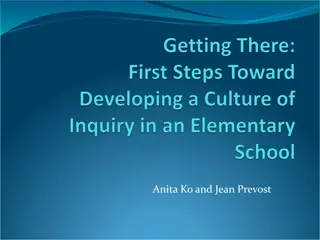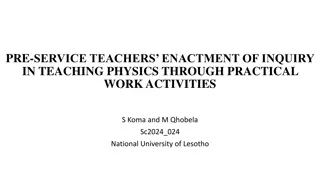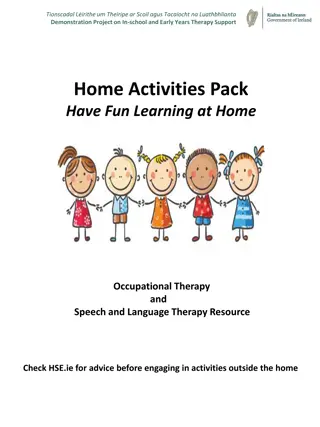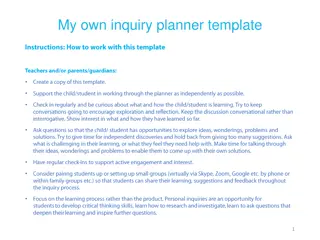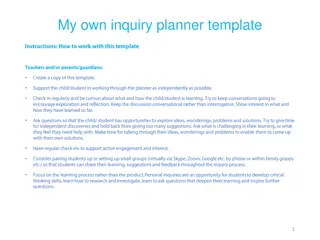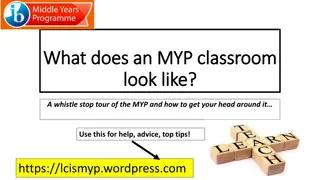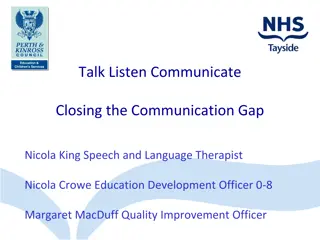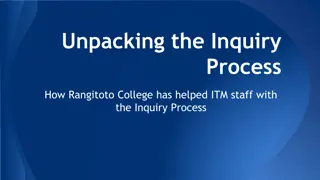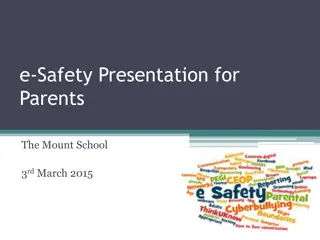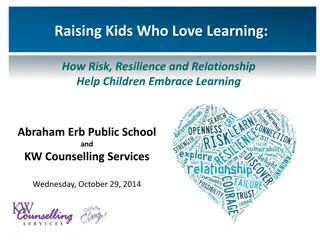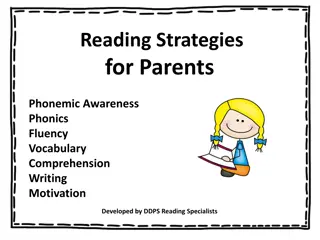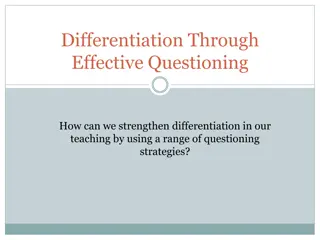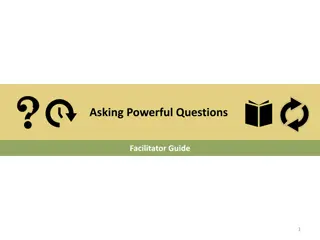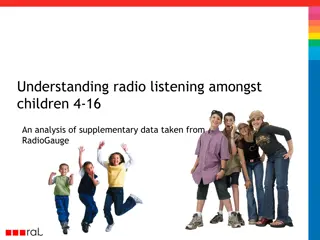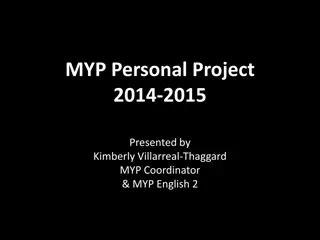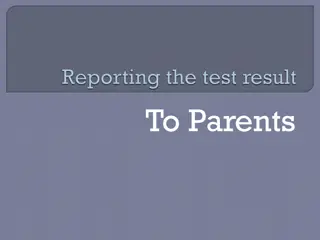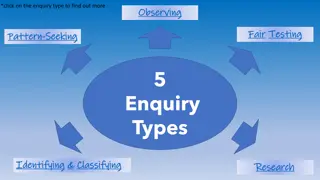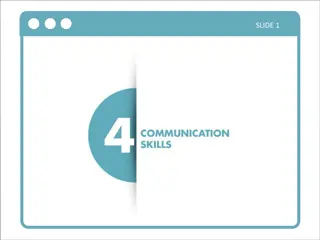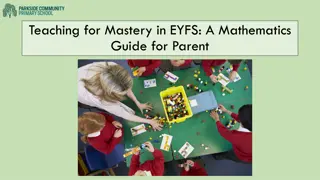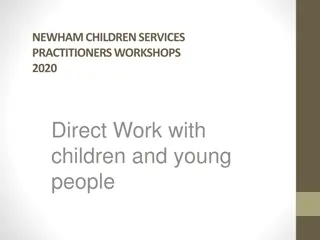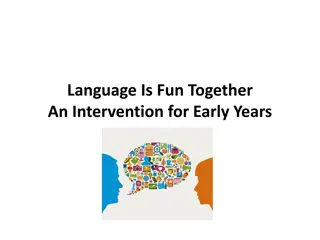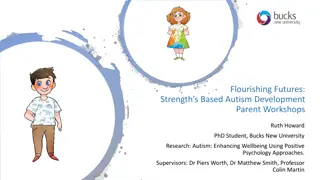Encouraging Inquiry Skills in Children: Strategies for Parents
Empower parents with effective strategies to encourage their children to ask questions about the world around them. The workshop features Mr. Farquhar sharing insights on fostering curiosity by valuing and encouraging children's questions, modeling questioning behavior, and allowing thinking time for thoughtful responses. Learn how to ask good questions, avoid overwhelming children, and stimulate critical thinking through open-ended inquiries.
Download Presentation

Please find below an Image/Link to download the presentation.
The content on the website is provided AS IS for your information and personal use only. It may not be sold, licensed, or shared on other websites without obtaining consent from the author. Download presentation by click this link. If you encounter any issues during the download, it is possible that the publisher has removed the file from their server.
E N D
Presentation Transcript
Developing Enquiry Skills Parent Workshop Encouraging children to ask questions about the world around them Mr Farquhar
5 Strategies To Support Your Child's Learning With Questions 1. Encourage your child to ask the why question. It is important for children to know why things happen and they ask questions to gain information. 2. If your child asks a question and you do not know the answer, it is fine to say, I don t know! Let s find out together. You can work with your child to research and find answers to the questions. 3. Value the questions that your child asks. If you get flustered or annoyed easily by your child s questions, he/she may begin to think that you do not want to answer questions or that asking questions is not okay. Focus on showing your child that questions matter by giving encouraging responses. This will encourage your child to ask questions freely and feel good about being curious.
5 Strategies To Support Your Child's Learning With Questions 4. If we want our children to be confident in asking questions, we will have to model asking questions. Ask questions around specific experiences, for e.g., If your child sees another child crying and asks, Why is that baby crying? you can ask, What do you think happened to make the baby sad?" or What things make you feel sad? 5. Give children enough time to think and come up with questions.
How to ask good questions 1. Ask one question at a time. Multiple questions at the same time create confusion. A constant barrage of questions is very likely to overwhelm and pressurise children. E.g. How was school? Did you learn anything? What did you have for lunch? 2. Avoid too many closed questions. Closed questions limit responses as they often invite short one word answers like yes and no . Closed questions often request specific facts or information. However, it is important to remember that we ask questions to stimulate children s thinking, to encourage discovery and build interest, not simply to obtain correct or predetermined answers.
How to ask good questions 3. Try not to answer your own questions. E.g. What was on your sandwich? Cheese? Did you like it? Yes? To communicate and connect meaningfully, allow your child to share his or her feelings, understandings and theories. Show that you are genuinely interested to know what he or she thinks, feels and believes. 4. Do not rush your child to provide an answer. Build in thinking time so that your child can reflect and then respond. Encourage your child to consider a question and to think deeply, at his or her own pace. Perhaps he or she needs to reflect on prior experience, talk with others to find out more, reflect on prior experience or even do some research.
How to ask good questions 5. Look out for non verbal responses as well. Children communicate their ideas in many different ways e.g. drawing, dance and movement, body language. Appreciate and value each and every way your child chooses to express himself or herself
Creative Activities that help asking questions Introduce them to new things Keep time for free play Read books with them Pick the right toys
Questions to ask your child at the end of the day 1. What was the best part of your day? Why? 2. What made you smile today? 3. If you could be the teacher for a day, what would you do differently? 4. What is something that happened today that challenged you? 5. Who brought the best lunch? 6. If you could relive one part of the day, what would it be? 7. What new things did you learn today? 8. What are you most excited about for tomorrow? 9. What is your favourite part about school? 10. What is something you saw that made you think? 11. What s the weirdest word you heard today? 12. If you could change one thing about your day, what would it be?
Starting open-ended questions: Here are 9 easy ways to start an open-ended question: 1. What would happen if... 2. What do you think about... 3. I wonder... 4. In what way... 5. Tell me about... 6. How can we... 7. What would you do... 8. How did you... 9. Why do you think
Developing Enquiry Skills Parent Workshop Encouraging children to ask questions about the world around them Mr Farquhar
